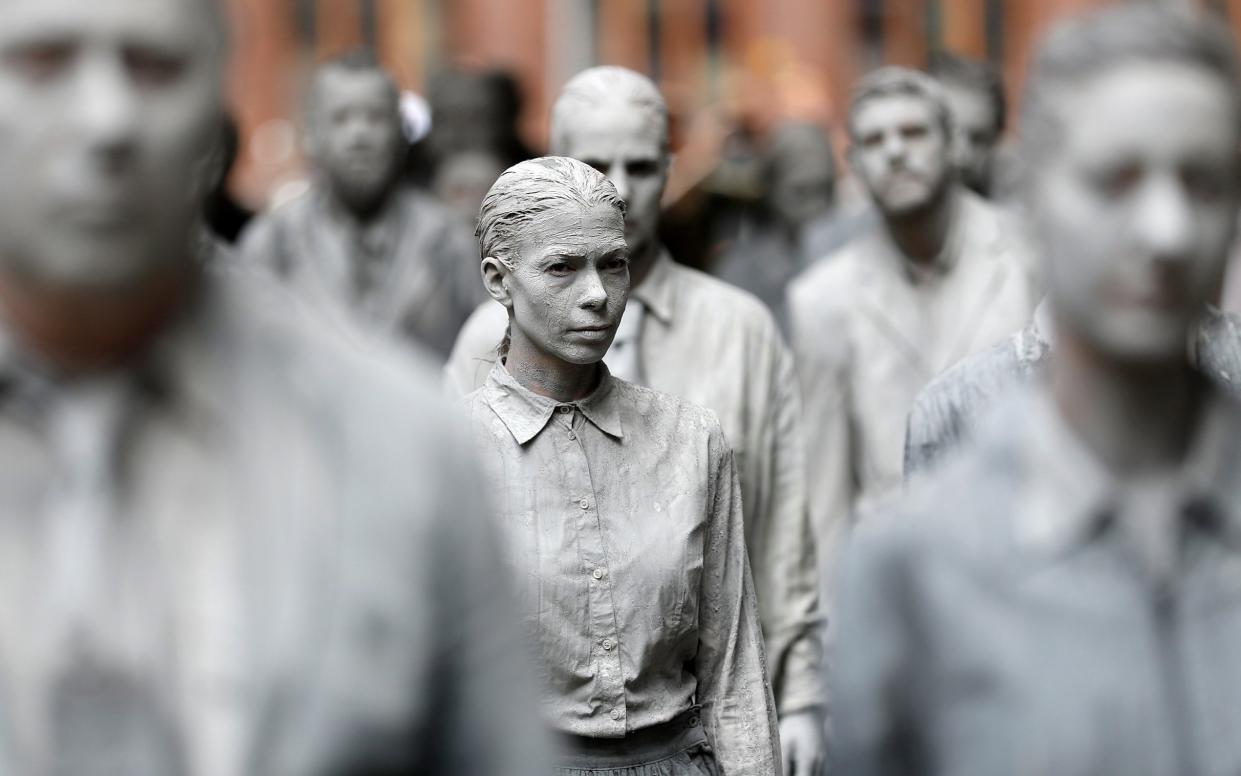Cannibalism, zombies and ennui in a beautiful tale of the afterlife

In 2012, the writer and artist Anne de Marcken denounced happy endings as untrue to the real world – and a trick. “They inhibit us from acting on our impulses,” she told a TEDx audience. “‘Don’t worry’, they say. ‘You’ve done your part, you need not act, everything is OK.’ But clearly, everything is not OK.” Twelve years later, de Marcken has transformed that belief into a soul-stirringly expansive novel, It Lasts Forever and Then It’s Over. Here, classic dramatic structures – introduction, rise, climax, fall, resolution – are distended, and linger after the curtains close.
In a post-apocalyptic afterlife, inside a hotel where exit signs are a “dim irony at the ends of the long hallways” and guests misplace their memories – “did I like strawberry ice-cream?” – our nameless, undead and perpetually hungry narrator is in the process of forgetting her time on Earth. Her days, conveyed to us in a fragmented present-tense, are now spent cannibalising couples, attending “salvation” meetings on the dissolution of reality, and testing the rules of decomposition by stuffing a dead crow inside her chest.
Her purgatorial norm is unexpectedly destabilised by a black hole-like occurrence that swallows all forms of light and sound, and “anyone it can catch”. Our narrator escapes, running along an empty freeway. Along the way, she visits an array of identical towns while engaging in existential conversations with the (now-verbal) crow, before being decapitated by a group of guerrilla activists seeking “The End of the Zombie Apocalypse Now”. Yet her head and body are still disconcertingly aware. Absolution is never within reach.
It Lasts Forever… is darkly comic and metaphysical. It adheres to a more-or-less linear structure, with seven parts stitched together by seven epigraphs, from the theorist Hélène Cixous – “if the end escapes us, where are we?” – to the poet Charles Simic – “one can hear the old river, which in its confusion sometimes forgets and flows backwards”. But between its paragraphs are gaps of varying sizes: open holes, silences, intervals. We, as readers, are also cast as indeterminate figures, addressed in the second person and filled with the memories of someone else: “The space between me and me is you. This is a mystery.”
Our culture is obsessed with completion and conclusions, despite being in a world that never concludes or completes. By resisting endings, de Marcken’s deeply imaginative novel reflects that world – our collective story. In other words: “Just after everything is over, it isn’t.”
It Lasts Forever and Then It’s Over is published by Fitzcarraldo at £10.99. To order your copy for £9.99, call 0844 871 1514 or visit Telegraph Books

